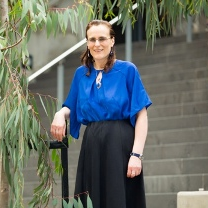Discoveries of Bioactive Compounds from Algae
A special issue of Marine Drugs (ISSN 1660-3397). This special issue belongs to the section "Marine Biotechnology Related to Drug Discovery or Production".
Deadline for manuscript submissions: closed (1 March 2024) | Viewed by 1574
Special Issue Editor
Interests: marine and terrestrial natural products chemistry; isolation and structural characterization; NMR spectroscopy; analytical separation methodologies
Special Issues, Collections and Topics in MDPI journals
Special Issue Information
Dear Colleagues,
Bioactive compounds derived from algae still comprise an important and active area of research in the field of drug discovery. This Special Issue of Marine Drugs invites scholars to submit research into algae and aims to highlight new isolation and structural elucidation approaches, and developments in drug discovery, synthesis and medicinal chemistry, structural methods, chemical biology and biotechnology, and genomic tools. Additionally, we will publish studies on metabolomics and bioassay-guided and chemical profilin methodologies to expedite discoveries and advance potential therapeutics. This Special Issue invites reviews and original contributions in any of these areas.
Prof. Sylvia Urban
Guest Editor
Manuscript Submission Information
Manuscripts should be submitted online at www.mdpi.com by registering and logging in to this website. Once you are registered, click here to go to the submission form. Manuscripts can be submitted until the deadline. All submissions that pass pre-check are peer-reviewed. Accepted papers will be published continuously in the journal (as soon as accepted) and will be listed together on the special issue website. Research articles, review articles as well as short communications are invited. For planned papers, a title and short abstract (about 100 words) can be sent to the Editorial Office for announcement on this website.
Submitted manuscripts should not have been published previously, nor be under consideration for publication elsewhere (except conference proceedings papers). All manuscripts are thoroughly refereed through a single-blind peer-review process. A guide for authors and other relevant information for submission of manuscripts is available on the Instructions for Authors page. Marine Drugs is an international peer-reviewed open access monthly journal published by MDPI.
Please visit the Instructions for Authors page before submitting a manuscript. The Article Processing Charge (APC) for publication in this open access journal is 2900 CHF (Swiss Francs). Submitted papers should be well formatted and use good English. Authors may use MDPI's English editing service prior to publication or during author revisions.
Keywords
- algae
- drug discovery
- medicinal chemistry
- structural methods
- chemical approaches
- metabolomics






